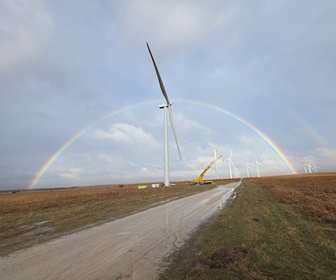If Germany wants to achieve its climate protection goals and make the energy transition a success, electricity distribution networks must be expanded and modernized.
Without corresponding grid investments, follow-up costs of up to €4.2 billion per year up to 2050 will arise in the coming decades. This is shown in a study carried out by RWTH Aachen University and Frontier Economics on behalf of E.ON. It quantifies for the first time the economic value of the electricity distribution networks in Germany.
According to the study, investments totaling over €110 billion will be required by 2050. If investments in electricity grids are not made consistently and on a long-term basis today, they will no longer be able to handle the electricity generated from renewable energies.
The grids also need a strong development due to the increase of many new customer solutions like e-mobility, heat pumps or storage systems. For network operators, the necessary investments can only be financed if the regulatory framework is adapted and investments in the grids in Germany remain attractive in a European comparison.
To ensure that decentralized green electricity continues to reach customers reliably in the future, E.ON will invest around €6.6 billion in its energy networks in Germany over the next three years.









